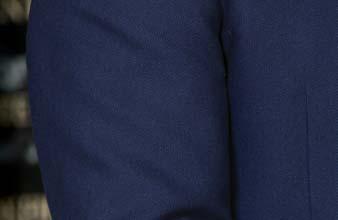
2 minute read
JUSTIN DONNELLY
by RSL NSW



In October, a woman posted on the Department of Veteran Affairs’ Facebook page about her situation. She had experienced financial hardship, family relationship breakdown and homelessness. I reached out to her directly and within 48 hours she was linked into our services.
A week later, she came into our Homes for Heroes program to receive support from our case managers, who helped her with financial assistance, educational opportunities and pathways into affordable and sustainable housing options.
I served more than 12 years in the Australian Army, the last nine in Army Psychology as a Psychological Examiner, where I was a Sergeant. I finished up in December last year, and started looking for employment where I could support veterans and the Defence community, because that’s what I was passionate about. That’s what attracted me to RSL LifeCare Veteran Services. behind on their electricity bill this month, for instance. When they do, we can run a comprehensive wellbeing assessment to discover the underlying issues. It means we can offer support to help stop the issue from recurring. We’re not a crutch; we don’t pay people’s bills forever. Instead, we help people recognise their strengths and opportunities. We might link them up with free courses to boost their skills. We link them into support services that help reverse their situation. At all times, we keep the veteran at the centre of their own care journey.




I’d had enough shared experiences to understand what soldiers go through. My background has been around supporting soldiers on the ground, so I don’t ever want to be too far from the reality of what veterans are experiencing. And my experience with the veteran on Facebook made me recognise I will always have those moments where I realise directly, on a human level, why I’m doing it.
On the management side, my experience in Defence left me with transferable leadership skills that have helped in finding a job in the civilian sector. In the past I’ve met managers who are not critical thinkers. They’re faced with a complex or somewhat dynamic, unfolding situation and they don’t know what to do. Military experience helps me to stay composed in these sorts of situations.
I come from a mental health background where I’ve responded to critical incidents many times while on operations. I’ve seen and heard the worst of what humans can do, so I have my own baggage in a sense. But being proactive, I want to keep moving forward, and support people to improve their situation.
The end user is the veteran. The support they don’t receive could cost them their life, and we all know I’m not being dramatic by saying that.
Sometimes our dynamic and unfolding situations involve human beings. They might come to us because they’re »
So if we can keep moving things forward and improving things for veterans, it will absolutely be life-changing for those who have served.
A WELLBEING SUPPORT OFFICER IN EVERY SUB-BRANCH
The RSL NSW Strategic Plan 2021-2026 outlines a plan to assign every discharging or retiring ADF member a Wellbeing Support Officer.
This Wellbeing Support Officer will be a trained, volunteer RSL NSW member from a local subBranch.
They will provide connections to camaraderie and support services, training and employment pathways, housing assistance, health services, and more to ease the individuals’ transition and provide assurance.
Wellbeing Support Officers will also be positioned on or near ADF bases to support serving and transitioning personnel.
Find out more in the RSL NSW Strategic Plan 2021-26.






